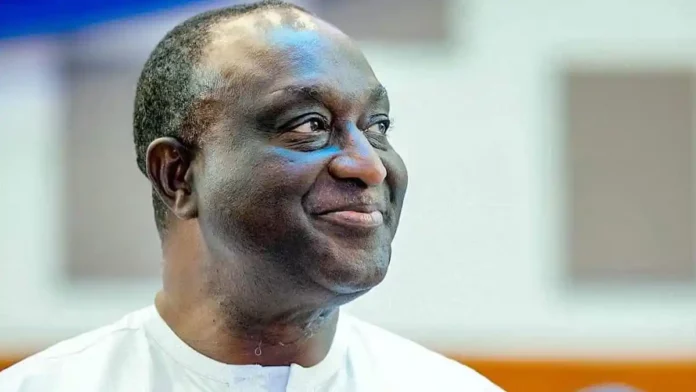Leader of the Movement for Change, Alan Kyerematen has re-iterated the need for the country to move beyond the implementation of party manifestos to the implementation of a non-partisan national development plan that meets the real needs of Ghanaians.
The Independent Presidential Aspirant says in the midst of an economic crisis, Ghanaians with the required competence are looking for a non-partisan platform to contribute ideas and policies that will transform the country; which he seeks to provide.
Speaking at a National Economic Summit organised by his Movement, on February 2, Alan Kyerematen advocated a shift towards the right solutions to unlock Ghana’s true potential.
“There is a compelling desire by majority of Ghanaians to move Ghana beyond party manifestos towards the formulation of a National Development Plan which all Ghanaians can sign up to,” he stated.
Panel discussions at Summit centered around Macroeconomic Stability, Industrialization and the Growth of the Tourism Sector.
The Convenor, Alan Kyerematen also promised that another national Summit will be organised to discuss issues relating to Corruption and Governance.
In June last year, Alan Kyerematen, while a flagbearer hopeful of the New Patriotic Party (NPP), put forth his Great Transformational Plan (GTP) as a new direction towards accelerated growth that will position the country and break the cycle of International Monetary Fund (IMF) bailouts.
Speaking in a presentation to key private sector players on June 13, Mr Kyerematen expressed the value of deliberate Government policy driving desired outcomes in the private sector.
He said “Government has the power through policy to turn the economy around in the preferred direction”.
The GTP proposed by Mr Kyerematen aims to foster a more self-reliant and resilient economy, propelling Ghana from a state of stability and growth to one of transformation.
He stressed the need for a comprehensive plan to guide the nation beyond the transitional Post-COVID Economic Recovery Programme (P-CERP) currently underway with IMF support.
According to Kyerematen, the recent IMF bailout served as a lesson that Ghana’s economy remains fragile, vulnerable, and prone to external and domestic shocks. He attributed this vulnerability to the country’s heavy reliance on commodity exports with limited value addition. Additionally, he highlighted that the projected 5.1% GDP growth for the Ghanaian economy in 2023 hinges on anticipated increases in global commodity prices.
By Duke Mensah Opoku






![[VIDEO] Why I rejected President Kufuor’s ministerial appointment – Alan Kyerematen explains](https://onuaonline.com/wp-content/uploads/2024/04/Alan-Kufuor-218x150.jpg)






